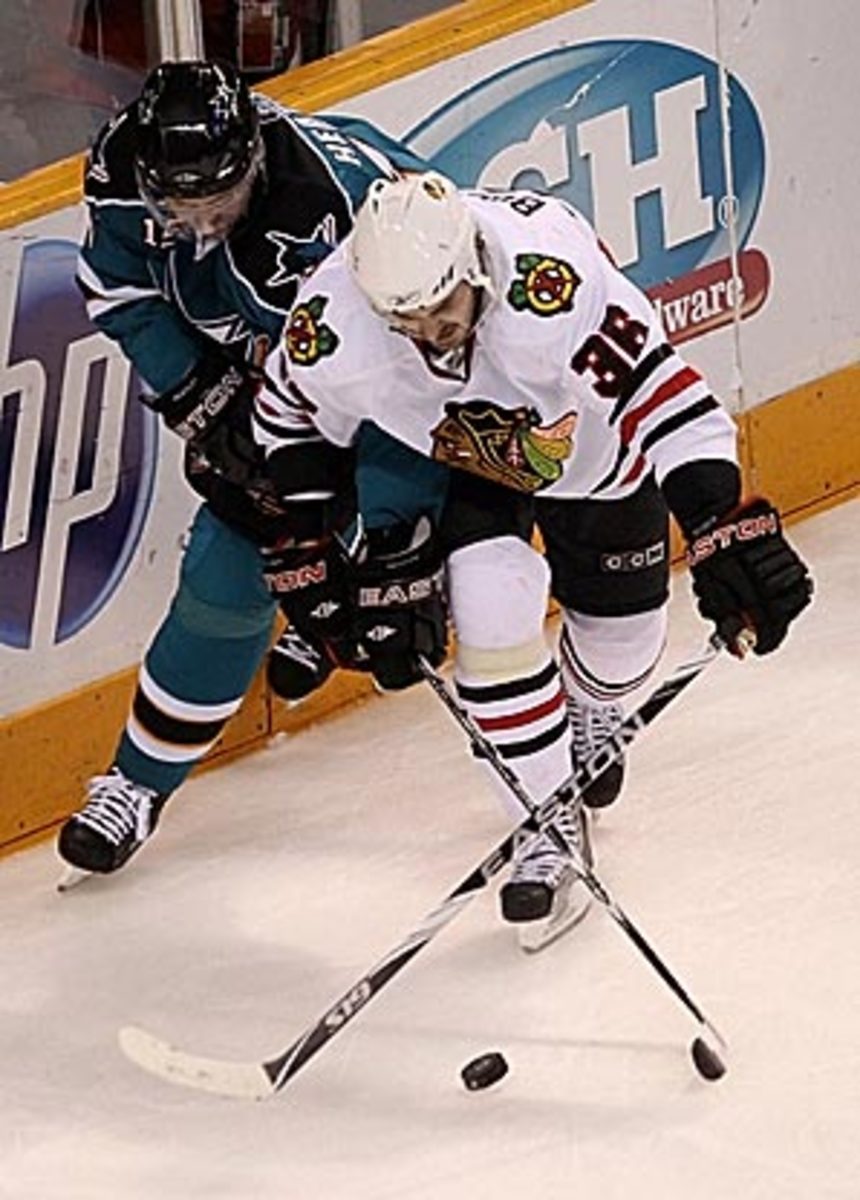Tough choices and tasks awaiting Sharks in Chicago
McLellan's counterpart, Joel Quenneville, doggedly chased the matchup of David Bolland's line against the Sharks' top unit of Joe Thornton between Dany Heatley and Patrick Marleau, who scored San Jose's goals in their 4-2 Game 2 defeat. But one was on the power play and not part of the head-to-head battle with Bolland, Kris Versteeg and Andrew Ladd. In that regard, Ladd scored a crucial and deflating goal that made the score 1-0 in the first period. Marleau's even-strength tally was inconsequential as it came in the third with the score 4-1 Blackhawks. Clearly, the advantage goes to Chicago's checking line.
In Chicago, Quenneville won't have to chase the matchups nearly as much because he will be the home coach with the last line change. That means his rotations should run even smoother. It's a situation that playoff hockey is all about: adjustments. The burden is now on McLellan to decide to mix up his lines to present a different look -- and hopefully a better result -- or have his high-priced top line slug it out and find a way to prevail. Either way, it is a tough predicament to deal with when you're heading out on the road down 2-0. Plus, there are other considerations for the Sharks to contend with.
So far, the Blackhawks have owned the middle of the ice. Other than Ladd's long-range wrister -- the type of shot that Sharks' goaltender Evgeni Nabokov has to snare -- the other three goals came from tip-ins by Dustin Byfuglien, Jonathan Toews and Troy Brouwer. Defensively, the Sharks have to do a better job of controlling the traffic in their end by eliminating sticks -- certainly in Byfuglien's case because no one is moving his mountainous frame -- and by establishing an earlier box-out presence at the paint.
Offensively, the same is true. The Sharks have to find a way to penetrate the middle of the ice. They aren't getting nearly enough forechecking pressure on the 'Hawks defense due in large part to the mobility of its rearguards. Led by Duncan Keith and his over 30 minutes of ice-time, the Blackhawks blueliners moved the puck efficiently in Game 2, thus limiting the Sharks to seven third-period shots on goal even though they trailed and were looking to rally. Throughout the first two games, when the Sharks did penetrate, goaltender Antti Niemi was there to stymie them.
Yes, the Sharks can come back on the Blackhawks, who have picked up only three of their 10 playoff wins on home ice. But they must first stem the Blackhawks' dictating matchups, better goaltending, more balanced scoring -- all three of their top lines scored at even strength in Game 2 -- and controlling the middle of the ice. With all of that to deal with, the Sharks and their coaching staff surely can use the extra day between games as the scene shifts to Chicago.
For the Sharks' sake, hopefully that won't be the only shift that occurs or this series will be over fast.





